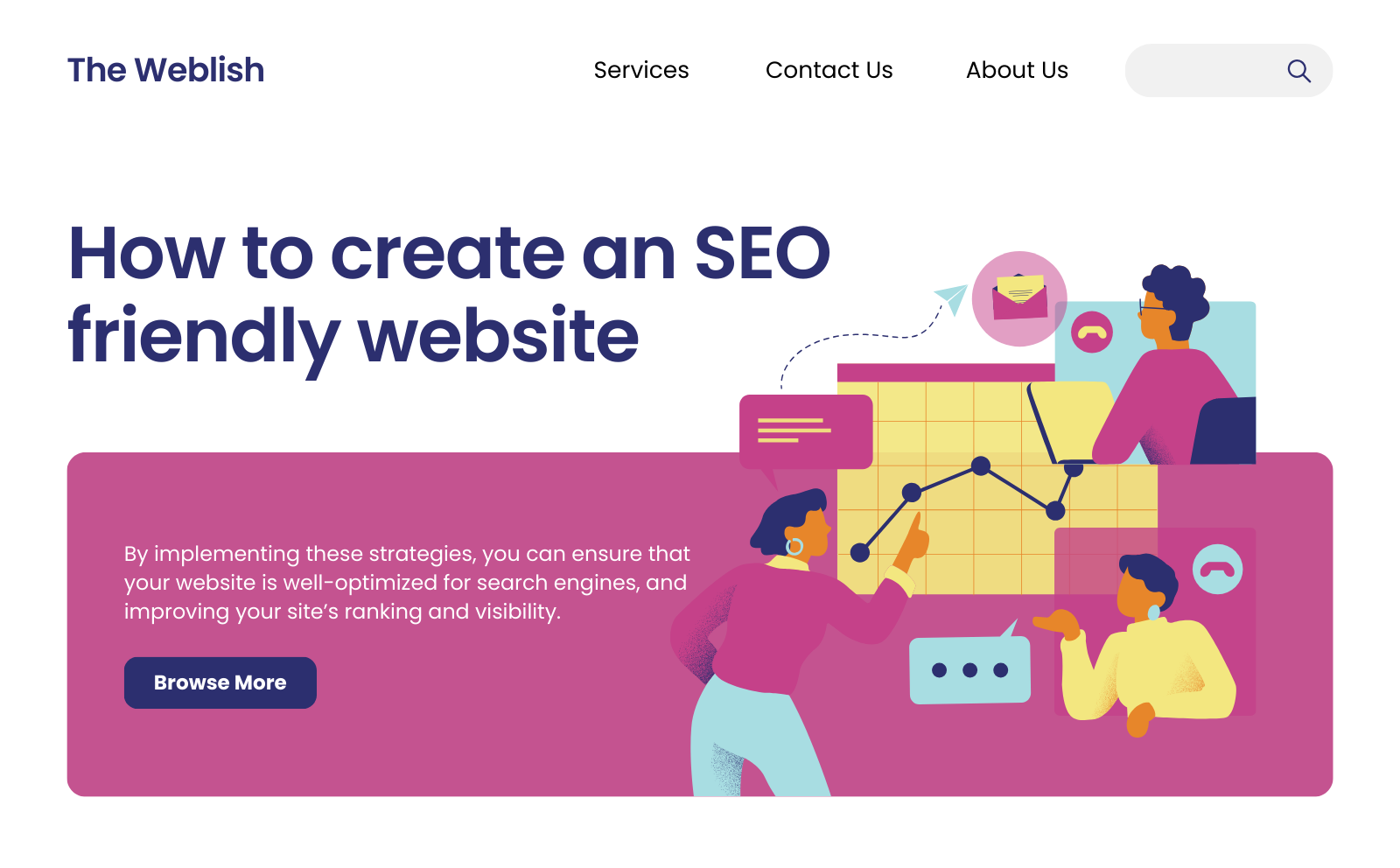Creating an SEO-friendly website is essential to ensure higher visibility in search engine results, drive more traffic, and ultimately achieve your business goals. Here's a comprehensive guide focusing on how to create an SEO-friendly website and enhance its performance.
Understand Your Audience and Keywords
Start by understanding your target audience and identifying the keywords they use. Utilize tools like Google Keyword Planner, SEMrush, and Ahrefs to find keywords with good search volume and low competition. Focus on the primary keyword lilke, "how to create seo friendly website," and incorporate secondary keywords like "how to create an seo friendly website," "how to make a website seo friendly," and "how to make site seo friendly" throughout your content.
Mobile-Friendly Design
Ensure your website is mobile-friendly as a significant portion of web traffic comes from mobile devices (For more information on how to get traffic to your website, read this blog.). Use responsive design techniques to ensure your site looks good on all devices. Google’s mobile-first indexing means the mobile version of your site is considered the primary version.
Fast Loading Speed
To improve the loading time of your website, reduce JavaScript, take advantage of browser caching, and optimize your images.
Quality Content
In SEO, content is king. Provide unique, high-quality content that benefits your audience. When writing content, naturally incorporate the main keyword (e.g., "how to create an SEO-friendly website") into headings and body paragraphs. Aim for in-depth how-tos, manuals, and educational articles that address your audience's needs.
On-Page SEO
Optimize individual pages to get more relevant traffic and achieve higher rankings. Important components of on-page SEO are:
- Title Tags: Include your primary keyword in the title tag
- Meta Descriptions: Use your main keyword in the meta description and write compelling sentences no longer than 160 characters.
- Headings: Use headings like H1, H2, and H3 in a semantic way to structure your content and include keywords.
- URLs: Use clean, descriptive URLs with keywords for better crawling by Google
Internal Linking
Internal links help search engines understand the structure of your website and establish a hierarchy of importance. They also keep visitors on your site longer by guiding them to related content. Use internal links to connect relevant pages on your site.
Backlinks
Search engines are informed that your website is reliable and authoritative when it receives backlinks from respectable websites. Create a backlink plan that involves contacting industry influencers, guest blogging, and producing shareable content.
User Experience
A positive user experience (UX) can lead to higher engagement and lower bounce rates, both of which are beneficial for SEO. Ensure your site is easy to navigate, visually appealing, and free of intrusive ads or pop-ups.
Technical SEO
Optimize your website’s backend structure to improve performance and visibility. This includes:
- Sitemaps: Create an XML sitemap to help search engines crawl your site.
- Robots.txt: Use a robots.txt file to guide search engines on which pages to crawl.
- HTTPS: Secure your site with HTTPS to protect user information and improve trust.
Regular Updates
SEO is an ongoing process. Regularly update your content to keep it fresh and relevant. Monitor your site’s performance using tools like Google Analytics and Search Console, and make adjustments as needed.
By implementing these strategies, you can ensure that your website is well-optimized for search engines, providing a better experience for your users and improving your site’s ranking and visibility.
For more information and services on creating an SEO-friendly website, visit our Search Engine Optimization service.
